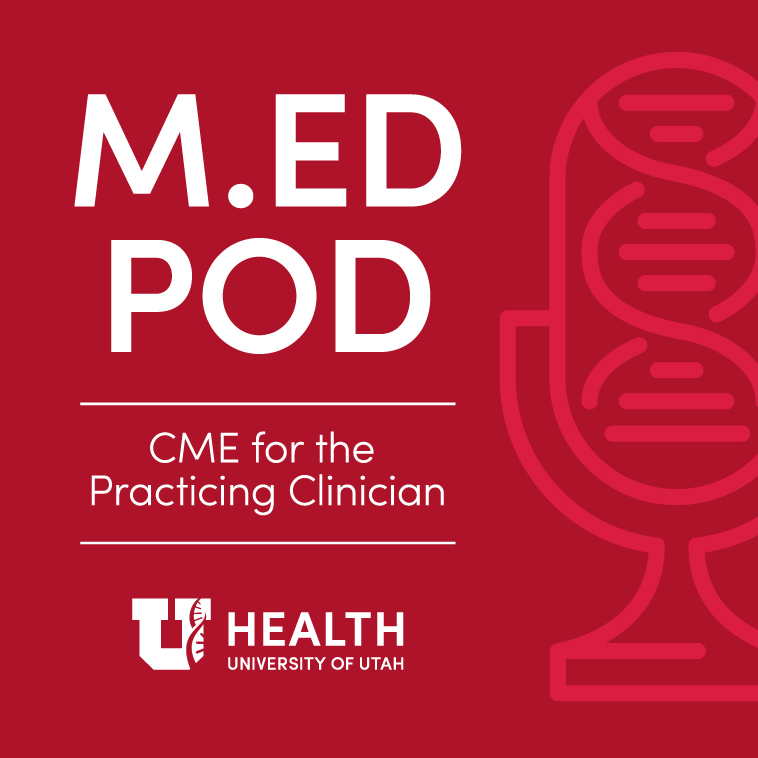
Medical Student Research Program
To increase medical education opportunities to students and rural community members, the RUUTE & Regional Affairs Program has worked to develop an 8-week research experience for current medical students to participate in. Students who participate in the program will develop critical thinking and research skills, create a research poster, and will understand how to present scientific communications to a variety of audiences.
This research experience is available for current SFESOM medical students during their summer intersession between their first and second year of medical school. The emphasis of this program is to provide research opportunities for students from rural and underserved areas throughout Utah and provide opportunities for students to work on projects emphasizing rural and underserved health.
Summer 26' Program Dates: COMING SOON!
Program Details
In order to apply to the program, applicants must meet the following criteria:
- Be a current SFESOM medical student.
- Able to find a research mentor/project to work on during the summer.
- Able to commit approximately 40 hours per week of work on a research project with your mentor.
- Able to commit to participation in a 1-credit research elective during the summer semester (MD 6001 – Research & Innovation: How to be an excellent and communicative researcher).
- Preferred: Students who have a passion for rural or underserved medicine, and who are pursuing a project pertaining to rural or underserved health.
- Time commitment: This is a full-time program. Selected applicants are expected to work approximately 40 hours per week on research and program-related activities for the entirety of the program. Specific details regarding project work with be negotiated with the student and faculty member.
- Mentor Meetings: Students will set up recurring meetings with their faculty mentor to ensure project activities and work are met.
- Elective Credit: Students will be required to take a one-credit summer research elective developed by the RUUTE team. This course is called Research & Innovation: How to be an excellent and communicative scientist (MD 6001).
- Final Presentations: Students are required to develop and present their work in a poster format to the RUUTE & Regional Affairs program. This may also include participation in a Medical Student Research Symposium with other research programs.
- Final Report: Students are required to fill out all RUUTE surveys regarding their experience. Further reporting may also be developed to capture student experiences.
Students selected into the program will receive a one-time stipend for their participation in the program. This stipend can be used for student expenses and living accommodations. Please note this is not be a tuition scholarship. Students will also be able to highlight this on their Resume or CV.

Application Details
What you will need to apply:
- Contact information
- Personal statement of why you would like to participate in this program and why you would be a good fit.
- Research Proposal
Research Proposal
Your research proposal must include the following:
- Title
- Introduction/Background
- Research Question(s)
- Proposed Timeframe
- IRB information – IRB needs to be approved, or in the final stages of approval before the start of the program.
- Clearly outlined student role
- How the research aims to address a gap in the literature
- Mentor biosketch/statement of support
Research Program Participants & Projects

Grace Richards
Project: Statistical Shape Modeling of the Pediatric Pelvis

Dillon Petty
Project: DOOR SCORE: A Caregiver’s Perspective

Sofia Carriera
Project: Improved Retention in Buprenorphine Treatment for Opioid Use Disorder in Rural Veterans with Some Telehealth Use

Jordyn Gagon
Project: Centering the Patient Voice: Insights to Improve Care for Pregnant Individuals with SUD

Maxwell Salter
Project: Biomechanical Assessment of Left Ventricular Function after Stereotactic Cardiac Radiotherapy for Ventricular Tachycardia

Katie Hansen
Project: Trends in Free Flap Based Autologous Breast Reconstruction Procedures and Outcomes Among Rural Populations

Brooke Larson
Project: Investigating Sociodemographic Variation in Parental Self-Efficacy from a Sun Safety intervention for Rural Youth

Samaya Cristina-Bailey
Project: Impact of Droperidol Introduction on EMS Clinician Perceptions in Managing Behavioral Emergencies: A Pre-Post Implementation Study

Elijah Counterman
Project: Naloxone knowledge and experience survey amongst an emergency department and low-income clinic population

George Smith
Project: Non-invasive detection of Vitamin A deficiency in children and pregnant women in the Navajo Nation

Joselyn Slobodow
Project: Evaluating Faculty Attitudes Towards Outreach and Potential Impact on Burnout

Haley Utendorfer
Project: Gaps Between Psychiatric Diagnoses and Medication Use in Individuals with Developmental Disabilities Presenting in Crisis

Hannah Willis
Project: Identifying Cultural Adaptations at a Single Site in the LUNG-IS Project: A Qualitative Thematic Analysis

Nicole Bouma
Project: Historic Redlining Practices Correlate with Increased All-Cause Mortality Among Head and Neck Cancer Patients: A Utah Population Database Study

Wade Quilter
Project: Manual vs Automated Ventilation with an iGel Airway During Short-Haul Helicopter Operations

Olivia Hanson
Project: Barriers and Facilitators to Neonatal Hypothermia Prevention in Nepal: A Qualitative Study of Provider Perspectives

Ayesha Khan
Project: Developing a Model for Brachytherapy Teaching and Procedure Simulation

Jackson Aubrey
Project: Impact of Utah's Healthy Places Index on Stroke Outcomes in Utah: A Retrospective Analysis

Eva Gontrum
Project: Using the Timeline of Depression Onset to Explore Dimensions of Chronic Pain

Justin Lyon
Project: Enhancing Access Through Store-and-Forward Teledermatology: A Quality Assessment of the University of Utah Health’s Dermatology eConsult Program

Jacob Bell
Project: Non-Invasive Screening of Vitamin a Deficiency in Pregnant Women and Children in the Navajo Nation

Matthew McKinnon
Project: Optimizing Dispatch Systems for Stroke Management: A Comprehensive Review

Rose Domonoske
Project: Mountain Bike Injury Patterns and Post-Injury Risk Tolerance: A Mid-Point Analysis

Claudia Melendez
Project: Meeting Patients Where They Are: Documentation of SDOH Within the Radiation Oncology
Contact Information
If you have any questions about the program, or any difficulty with applying, please reach out to Kacey Madsen.
CONTACT US
Please contact the RUUTE Team with any questions, concerns, or suggestions.
Email: RUUTE@umail.utah.edu
